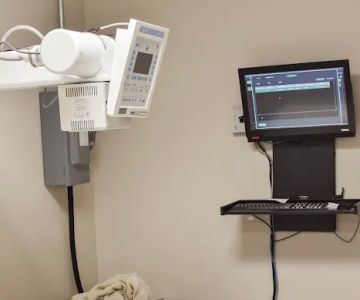Do Veterinary Assistants Do Anything in the Lab?
As a veterinary assistant, my daily responsibilities are as diverse as the animals I work with. One of the most frequently asked questions I hear is, “Do veterinary assistants do anything in the lab?” The answer might surprise you, as our role in the veterinary clinic extends far beyond basic animal care and assistance with procedures. In fact, we play a crucial part in laboratory work, and our involvement can significantly impact the efficiency of the veterinary practice. In this article, I’ll break down how veterinary assistants contribute to lab tasks, what we do in the lab, and how this supports the overall health and care of animals.
1. Understanding the Role of a Veterinary Assistant
Veterinary assistants are essential members of the veterinary team, providing support to veterinarians and veterinary technicians. While we primarily focus on assisting with animal care and ensuring that the clinic runs smoothly, many of us also play a key role in laboratory work. This can include anything from preparing lab samples and assisting in diagnostic tests to managing lab equipment. Some veterinary assistants are specifically trained in laboratory procedures, while others may receive on-the-job training to help with these tasks as needed.
In the lab, we work closely with the veterinary technician or veterinarian to ensure accurate sample collection and processing. Veterinary assistants are responsible for organizing and maintaining laboratory supplies, keeping records, and ensuring a clean and sterile environment. Our work in the lab directly affects the diagnosis and treatment of animals, making our role vital in a clinic’s success.
2. Preparing and Handling Lab Samples
One of the primary lab duties I have as a veterinary assistant is preparing and handling lab samples. This can range from taking blood samples, urine samples, and tissue biopsies to preparing fecal samples for testing. For each sample, I ensure that proper techniques are followed to avoid contamination and ensure the best possible results for the animal’s diagnosis.
For example, when collecting blood for a test, I assist in drawing the sample and ensure that it is stored properly for transport to the lab. It’s important to use the right equipment and handle the sample with care to ensure that the test results are accurate. In some cases, I also perform basic tests, such as checking a urine sample for signs of infection or dehydration.
The veterinary assistant's attention to detail in sample collection can be the difference between a correct and incorrect diagnosis, so being thorough and careful is critical in this aspect of the job.
3. Running Basic Laboratory Tests
While veterinary assistants typically don't perform highly complex lab tests, we are often responsible for running basic diagnostic tests under the supervision of a veterinarian or technician. These tests are essential for diagnosing common health issues in animals, and I often perform tasks such as testing blood sugar levels, analyzing urine samples for infection, and performing heartworm tests.
In some clinics, veterinary assistants may also prepare microscope slides and analyze the samples under supervision. I’ve spent time observing the process of testing blood for parasites or bacteria, which is an exciting part of the job. The test results give veterinarians the information they need to make informed decisions about the best treatment options for the animals we care for.
4. Operating and Maintaining Lab Equipment
Another critical part of our role in the lab is ensuring that lab equipment is properly maintained and used. I’m responsible for cleaning and calibrating various lab devices, such as microscopes, centrifuges, and hematology analyzers. Maintaining these devices is crucial, as their accuracy can significantly impact test results. Veterinary assistants are trained to understand the functionality of different pieces of equipment and troubleshoot any issues that may arise during use.
In addition to maintenance, we must ensure that all equipment is properly stored and organized, which helps prevent contamination or mishandling. A well-maintained lab contributes to the efficiency of the clinic, which ultimately leads to better care for the animals we treat.
5. Assisting in Laboratory Diagnoses and Treatment Plans
While we don’t make diagnoses ourselves, veterinary assistants play an essential role in helping veterinarians interpret test results and contribute to treatment plans. Once test results come in, I work with the veterinary team to understand what the results mean for the animal’s health and assist in explaining these results to pet owners. By doing so, I help ensure that the veterinarian has all the information needed to form the most effective treatment plan.
For instance, if a blood test shows that an animal has an infection, I assist by preparing medication and informing the owner about the prescribed treatment. My role in ensuring that all the information from the lab tests is organized and communicated properly helps keep the treatment process moving smoothly.
6. Learning and Growing in the Lab Environment
As a veterinary assistant, working in the lab also provides opportunities for continuous learning. The medical field is constantly evolving, and there are always new techniques, equipment, and tests to learn about. By assisting in the lab, I stay up-to-date with the latest diagnostic tools and practices. This ongoing learning process helps me improve my skills and provide better service to both the animals and their owners.
Additionally, as I gain more experience, I’m able to take on more advanced lab responsibilities. Some veterinary assistants even pursue specialized certifications or training to work exclusively in laboratory environments, making it an exciting field for career growth.
7. Conclusion: The Importance of Veterinary Assistants in the Lab
Veterinary assistants are integral to the smooth operation of veterinary clinics, especially when it comes to the laboratory. Our involvement in preparing samples, running basic tests, maintaining equipment, and assisting with diagnoses plays a significant role in the quality of care that pets receive. By taking on these responsibilities, veterinary assistants help ensure that animals get the best care possible, allowing veterinarians to make accurate diagnoses and treatment plans.
If you're considering a career as a veterinary assistant, it's important to know that working in the lab is an essential part of the job. Whether you're handling samples, running tests, or maintaining equipment, your work will directly impact the health of animals and their owners. It’s a rewarding and vital part of veterinary care!
SEO Title: The Importance of Regular Blood Tests for Pets in Veterinary Care SEO Keywords: veterinary assistants, veterinary lab tasks, blood tests for pets, pet health diagnostics, animal laboratory procedures SEO Description: Discover the vital role veterinary assistants play in laboratory tasks such as preparing samples, running tests, and supporting veterinary diagnoses, ensuring pets receive the best care.










